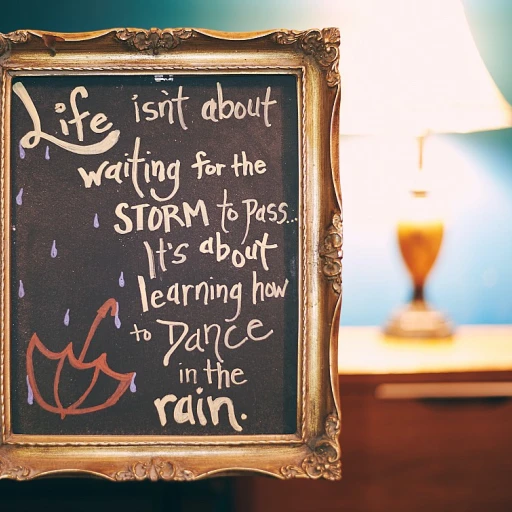Key Responsibilities of a Camp Counselor
Primary Responsibilities to Guide Young Minds
A camp counselor plays a pivotal role in shaping the summer experience of campers by ensuring a balance of safety, learning, and fun. The counselor job description varies from organizing activities to ensuring camper safety, and effective execution demands clear understanding and dedication.- Supervising Daily Activities: Counselors camp with the goal of involving campers in both fun and educational outdoor activities, such as swimming and hiking. The counselor's primary task is to manage these activities, ensuring they run smoothly and are enjoyed by all participants.
- Ensuring Safety and Well-being: With the safety of the campers at the forefront, a crucial responsibility is supervising and ensuring campers’ well-being at all times. This includes being prepared for emergencies, understanding first-aid procedures, and fostering a safe environment for all activities.
- Promoting Development and Learning: Through engaging activities, camp counselors offer enriching experiences to promote camper growth, nurturing skills like leadership and problem solving. They will receive the chance to guide campers to learn responsible group interaction and build self-confidence.
- Organizing and Leading Activities: Leading varied camp activities like crafts, games, and sports requires counselors to plan, coordinate, and execute these programs effectively, adapting to shifting interests and group dynamics.
- Building Positive Camper Relationships: Establishing and maintaining a positive rapport with campers is vital. By being approachable and supportive, counselors can create an inclusive atmosphere that allows for open communication.
- Team Collaboration: Counselors often work in tandem with other staff members to develop and finalize plans and daily schedules. Collaboration ensures that all aspects of camp life are covered efficiently, making it a coherent and impactful experience.
Essential Skills for Success
Building the Core Abilities for Camp Counselors
In the job description of any camp counselor, it's clear that certain abilities set successful candidates apart. The unique nature of the work, which involves nurturing young campers and engaging in outdoors activities like hiking and swimming, calls for specific traits and proficiencies.- Leadership Skills: As a camp counselor, you take on the leadership role, guiding campers through daily activities while ensuring their safety. This requires a solid foundation in leadership skills to manage groups effectively.
- Problem Solving: You will frequently encounter unexpected situations at camp, necessitating strong problem solving skills to handle them efficiently. Developing these abilities helps counselors maintain a smooth-running environment.
- Communication: Effective communication skills are crucial in conveying instructions and facilitating campers' learning experiences. This includes both verbal and non-verbal communication, as clarity and understanding underpin all camp interactions.
- Time Management: With a packed schedule of activities during summer camps, mastering time management is essential. This skill ensures counselors can balance multiple tasks, adhere to schedules, and optimize every camper's experience.
- Adaptability and Flexibility: Camp life is ever-changing. Successful counselors are those who embrace change and adapt to new circumstances, always keeping the campers' interests at the forefront.
Challenges in Hiring Camp Counselors
Challenges Faced During the Hiring Process
The task of hiring a camp counselor comes with its share of challenges, often stemming from the multifaceted nature of the job description. While camp counselors are tasked with ensuring campers have a rewarding experience, management must first identify candidates who possess the right blend of skills and enthusiasm. A primary challenge is finding individuals with a balanced mix of leadership skills and the capability to engage in various outdoor activities. The ideal candidate not only loves activities like hiking and swimming but also has the keen ability to ensure safety and foster an environment conducive to learning and fun. Often, less experienced candidates may apply, lacking the practical skills essential for addressing various unforeseen challenges that arise in the dynamic environment of a summer camp. Additionally, the hiring process must address concerns of consistency and compatibility. Camp counselors work long hours, often under varying conditions throughout the summer, and the ability to sustain energy and motivation is crucial. Hiring managers need to delve deeper than the typical resume and cover letter. Here, interview questions can play a crucial role, allowing candidates to demonstrate problem solving skills and their ability to handle responsibilities camp life demands. Recruiters might also face challenges related to inherent biases, such as ageism, in the hiring procedures. Understanding the makeup of a diverse team ensures a wider range of experiences and perspectives, ultimately benefiting campers. Recognizing ageism in hiring practices can be pivotal in achieving this balance. In conclusion, overcoming these hiring challenges involves a synthesis of understanding the camp's unique requirements and applying strategic interviewing techniques to unearth the best applicants who possess a genuine passion for the counselor job. This foresight ensures a more productive and harmonious summer camp experience for all involved.Interview Tips for Aspiring Camp Counselors
Crafting Insightful Interview Questions
The interview stage is a pivotal point in the hiring process for camp counselors. It's essential to ensure that candidates not only understand the job description but also possess the skills and qualities necessary for success. Here are some strategies and questions to consider when interviewing aspiring camp counselors:
- Behavioral Questions: Ask candidates to describe past experiences where they demonstrated leadership skills or had to apply problem-solving techniques. For instance, "Can you share a time you successfully resolved a conflict among campers during a previous camp experience?"
- Scenario-based Questions: Present hypothetical situations that may occur in a summer camp environment. For example, "Imagine a camper is homesick during their first time at camp. How would you help them adjust?" This assesses their ability to handle real-time challenges.
- Skills Assessment: Explore their ability to manage and participate in outdoor activities, such as hiking or swimming. Questions like "Can you describe how you would ensure the safety of campers during a group hike?" gauge their preparedness and responsibility.
- Enquire about Previous Experience: Understanding the candidate's prior relevant work experience helps identify the best fit for your camp's unique requirements. "What previous activities or roles have prepared you to effectively fulfill your camp counselor duties?"
- Passion and Motivation: Assess what drives them to apply for this role. Asking, "What motivates you to work as a camp counselor, and how do you hope to impact campers' summer experience?" can reveal their genuine interest and commitment.
By incorporating these strategic questions into your interview process, you can better ensure the selection of counselors who are not only skilled but genuinely enthusiastic about fostering a rewarding and safe camp environment for all campers.
Training and Development Opportunities
Growth and Development on the Camp Journey
Becoming a successful camp counselor requires more than just enthusiasm for outdoor activities. The role demands a blend of problem-solving skills, leadership abilities, and a passion for shaping the experiences of campers. While candidates may bring their unique talents to the table, training and development are crucial to honing the specific skills essential for this role. Participating in training programs offers counselors the chance to strengthen their abilities in several key areas:- Leadership Skills: Effective counselors will learn strategies to lead diverse groups, ensuring all campers feel included and valued during activities like hiking and swimming.
- Safety Management: Ensuring the safety of campers is paramount. Comprehensive training sessions on best practices in safety protocols prepare counselors to navigate emergencies efficiently.
- Activity Planning: Developing engaging and exciting camp activities is a major part of the counselor job description. Training in this area allows counselors to harness their creativity and offer a memorable summer experience.
- Conflict Resolution: Handling day-to-day issues with campers or among counselors requires adept problem-solving skills. Training programs provide techniques to navigate conflicts professionally and constructively.












